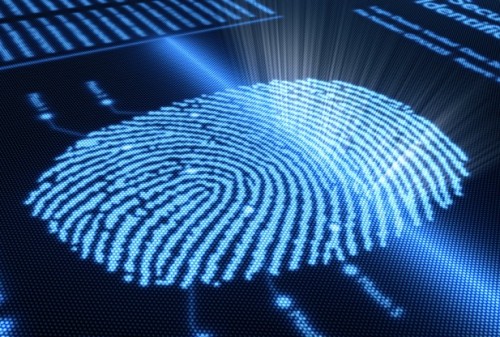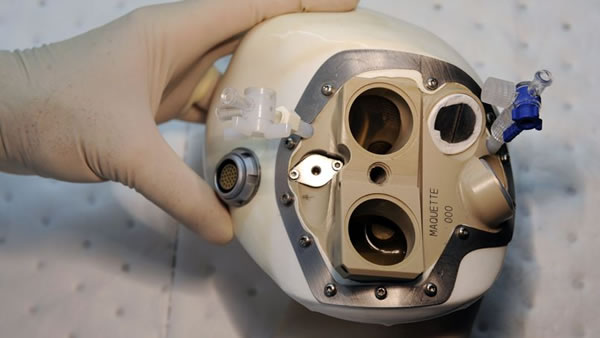(单词翻译:单击)
3.HDTV
3.高清电视
The first high-definitiontelevision broadcasts in the United States happened in the late 1990s. But the invention of the HDTV dates back much earlier. The Japan Broadcasting Corporation, also known as NHK, began work on a new standard for television that included a wider screen and more lines of resolution back in the late 1970s. By 1980, the first prototype sets were amazing viewers with pictures clearer than any set had shown before.
上世纪九十年代末期,美国首个高清电视广播电台问世,但高清电视的发明则要追溯到很久以前。上世纪70年代末,日本广播公司(NHK)便致力建立一套新的电视标准,其中便包括改良出更大的屏幕以及更高的线分辨率。到了1980年,首个高清电视雏形出现——拥有无可比拟的屏幕和异常清晰的屏幕。

The company was eager to push this new standard to other parts of the world, ensuring Japanese companies an advantage in the television market. It wasn't until 1987 that NHK got the opportunity to show the FCC, and even politicians in Washington, D.C., what HDTV could do. The reaction ranged from amazement to anxiety. The implications of HDTV went far beyond viewer enjoyment -- it could affect everything from the television manufacturing market to the semiconductor industry.
公司急于将这个新标准推广到世界各地,以确保日本公司可在电视市场占有绝对优势。直到1987年,NHK(NHK:日本放送协会)得到一个展示FCC(FCC:Federal Communications Commission,美国联邦通讯委员会认证)的机会,甚至是在华盛顿特区的政治家也认为高清电视无所不能。公众的反应从惊奇到担忧。高清电视所产生的影响远不仅仅只是感官体验,它甚至会影响涵盖电视生产市场到半导体工业的一切。
The United States took a slow, cautious approach. It wasn't until the late 1990s that HDTV sets became available on store shelves. But the TVs that surprised American consumers at the close of the 20th century could have been in homes a decade earlier.
美国采取了缓慢而谨慎的政策,直到20世纪90年代后半叶,高清电视才成为商场中可销售的商品。令20世纪末的美国消费者惊讶的是,电视本可以十几年前就走进大众的家中。
2.DNA Fingerprinting
2.基因指纹识别

Science was forever changed in 1984, and the groundbreaking moment had nothing to do with George Orwell's famous sci-fi dystopia. British geneticist Alec Jeffreys was trying to trace genetic markers through family generations when he accidentally discovered something far more important: Every unique person has an equally unique DNA profile. Seems obvious, right? Well, at the time, it wasn't -- and Jeffreys' realization had a huge impact on science and many other industries.
1984年的科学发明是日新月异的,而科学界最具开创性的时刻与乔治·奥威尔(George Orwell)的著名反乌托邦科幻小说无关。英国遗传学家亚历克·杰弗里斯(Alec Jeffreys)在尝试通过家族关系来追踪遗传标志的时候偶然发现了更重要的事情:每个人都是独一无二的,同样每个人的基因图也是独一无二的。听起来很正常对不对?可是,在那个时期这并不是一件司空见惯的事情。杰弗里斯的发现对科学领域以及许多其他工业领域产生了重大影响。
Unique genetic profiles are derived from the profiles of our parents, meaning lineage can be traced back through generations with DNA testing. But there are obviously other uses, too -- imagine modern-day criminal investigation without DNA forensics. Jeffreys coined the term DNA fingerprinting and earned a knighthood for his work.
每个人的独特的基因图是由我们父母的基因衍生而来,这就意味着人们可以通过基因测试追溯其家族血统。但基因测试显然还有别的用途:想像一下,如果当今的刑事调查没有基因鉴证会变成什么样?杰弗里斯创造了“基因指纹识别”这个词,也因此获得了“骑士”称号。
As DNA fingerprinting spread from Jeffreys' lab, so did its scope. Today, the world of forensic science owes its development to DNA profiling. And like humans, animals have unique genetic codes that can be used to -- for example -- catch poachers illegally selling the skins of endangered animals.
随着基因指纹识别的传播,杰弗里斯的影响范围也随之扩大。基因指纹识别的发展对当代世界法医学的贡献是巨大的。与人类一样,每个动物的基因序列也独一无二,它们同样也具有刑事作用。比如,人们可以用来逮捕非法售卖濒危动物皮毛的偷猎者。
1.The Permanent Artificial Heart
1.永久性人工心脏

Research into artificial hearts dates back to the 1950s. The first surgical implantation of an artificial heart in a human being took place in 1969. But early artificial hearts were a temporary measure. The goal was to use the equipment to keep the patient alive until a surgeon could perform a true heart transplant.
有关人工心脏的研究可追溯到20世纪50年代。第一例人类的人工心脏的手术植入发生在1969年。早期的人工心脏只是权宜之计,目的仅仅是在手术医师进行真正的心脏移植之前通过设备维持病人的生命。
The Jarvik-7 artificial heart was different. Engineers designed it to be a permanent heart transplant instead of a stopgap measure. The first implantation of a Jarvik-7 heart took place in 1982. The lead surgeon was William DeVries and the name of the cardiac patient was Barney Clark. The heart ran on compressed air. Tubes from a compressor entered Clark's body through incisions in his abdomen. Clark survived 112 days after the surgery before passing away.
而贾维克七号人造心脏(Javic-7)是不一样的。工程师把它设计为永久性的而非临时的人造心脏。首例贾维克七号心脏移植发生于1982年,主手术医师是威廉·德乌里(William DeVries),心脏病患者为巴尼·克拉克(Barney Clark)。人造心脏首先存放在压缩机里,再通过机器的导管通过病人腹部的切口送进身体内部。移植手术后,克拉克存活了112天。
Living with a Jarvik-7 heart would require some serious adjustments. The home system for the heart had a console about half the size of a refrigerator. There was also a portable system that had a power unit about the size of a briefcase. Even now, several medical institutions rely on artificial hearts that are nearly identical to the Jarvik-7 model from 1982 to keep patients alive while waiting for a real human heart.
想要贾维克七号支撑人体的生命,还需要做很多重大的调整。而这个家用系统的控制器体积同半台冰箱的体积等大。当然,也有行李箱体积大小的便携式功率系统装置。即便是如今,在找到真正的心脏之前,依然有许多医疗机构依靠与1982年的贾维斯七号相近的人造心脏来维持病人的生命。
That ends our trip back to the 1980s. It's time to strip off the leg warmers, put away the shoulder pads and resume wondering where all the music on MTV went.
好了,20世纪80年代的科学之旅到此为止。是时候让我们去掉暖腿宝和肩带,跟着音乐电台的音乐畅游了。
审稿:省略珺 校对:CMX


